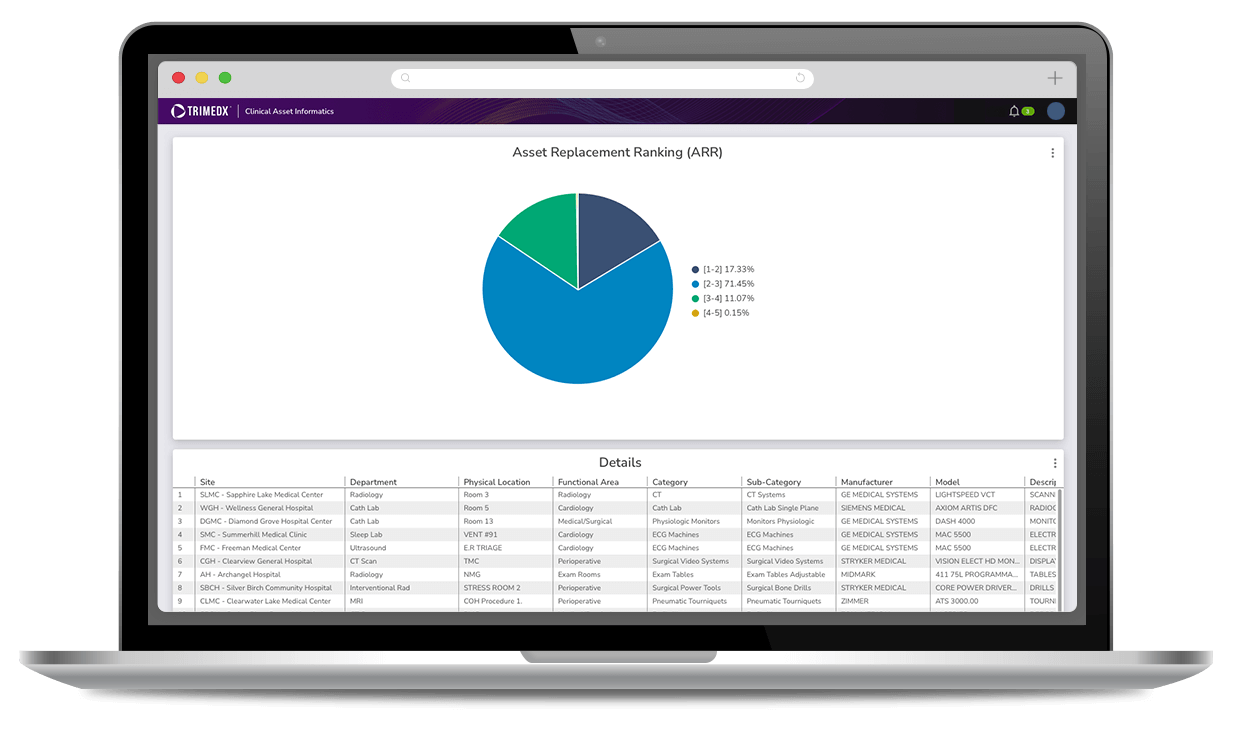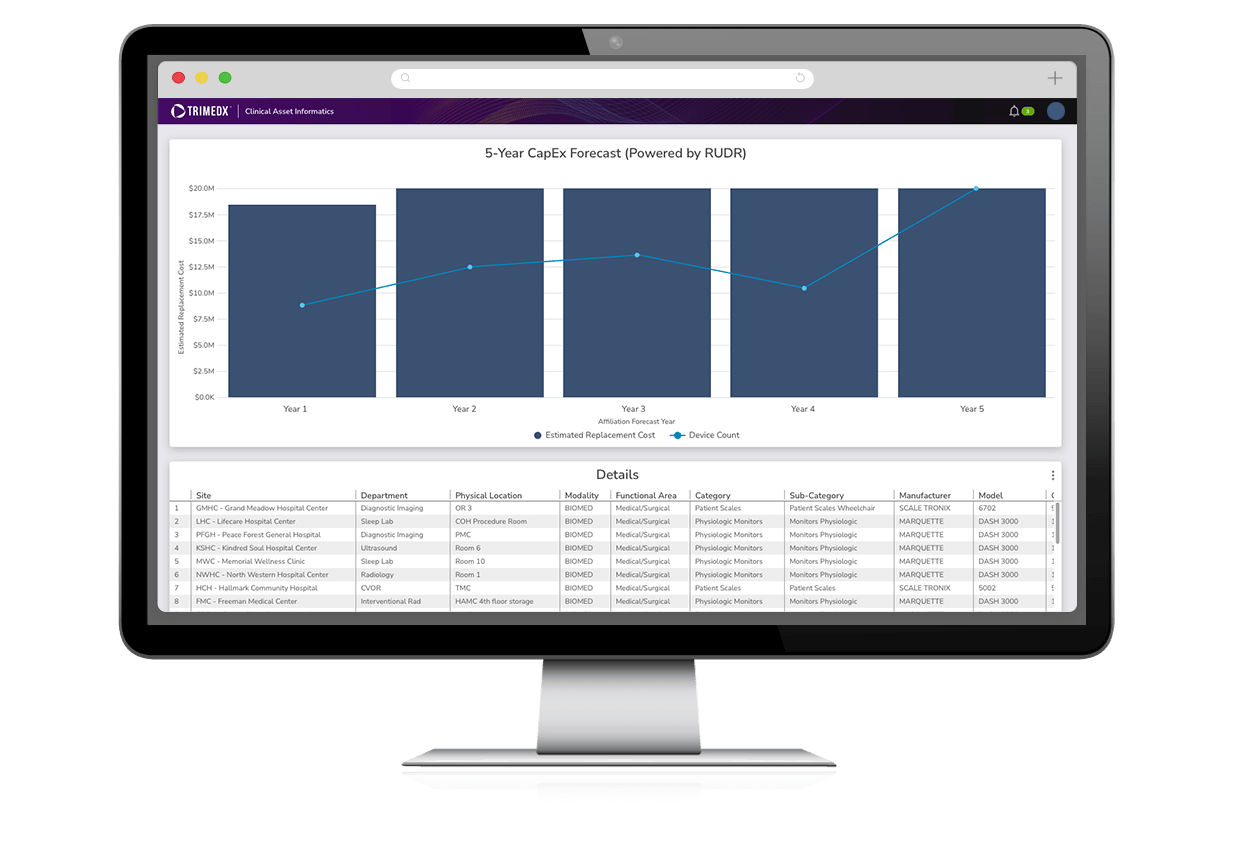MEDICAL EQUIPMENT REPLACEMENT PLANNING
-
Medical Equipment Replacement Planning
MEDICAL EQUIPMENT REPLACEMENT PLANNING
-
Medical Equipment Replacement Planning
Optimize Capital spending with data-driven medical equipment replacement planning
Optimizing medical device inventories to realize financial savings includes more than maintenance. Knowing when to replace an aging device is also crucial to maximizing the value of devices. How do health systems know the best time to invest in new equipment?
With TRIMEDX’s Clinical Asset Informatics, both biomed technicians and C-suite leaders have access to an unprecedented level of real-time and historical data on their medical devices. The Clinical Asset Informatics platform includes multiple tools to drive informed capital decisions and financially sustainable medical equipment replacement planning.
ASSET REPLACEMENT RANKING (ARR)
The ARR ranks all monitored equipment based on the timing in which it will need to be replaced. The ARR is informed by factors including age, parts availability, downtime, and repair history. Users can filter the list by location, service unit, equipment category, and even type of device for up-to-the-minute information on where to anticipate capital budget needs and focus medical equipment replacement planning efforts.


5-YEAR CAPEX FORECAST
The 5-Year CapEx Forecast provides a capital expense forecast for qualifying equipment that is predicted to need replacement over the next five years. This metric incorporates data from the ARR to provide detailed projections and drive strategic, future-looking medical equipment replacement planning.
Want more options to create a more informed capital planning process and meet equipment needs?
Explore the TRIMEDX Clinical Asset Management (CAM) Advanced solution.
WHITE PAPER
LEVERAGING A CLINICAL ASSET MANAGEMENT SOLUTION TO OPTIMIZE CAPITAL PLANNING
A nationally recognized academic medical center was looking to improve its capital planning process to optimize its clinical asset inventory and drive savings. They turned to their clinical engineering provider, TRIMEDX, for help in implementing a comprehensive clinical asset management solution. As a result, the health system was able to save millions of dollars, implement a sustainable capital planning process, and improve communication between administration and clinicians.
.jpg?width=400&height=518&name=White%20Paper%20-%20Leveraging%20a%20clinical%20asset%20management%20solution%20to%20optimize%20capital%20planning%20(1).jpg)